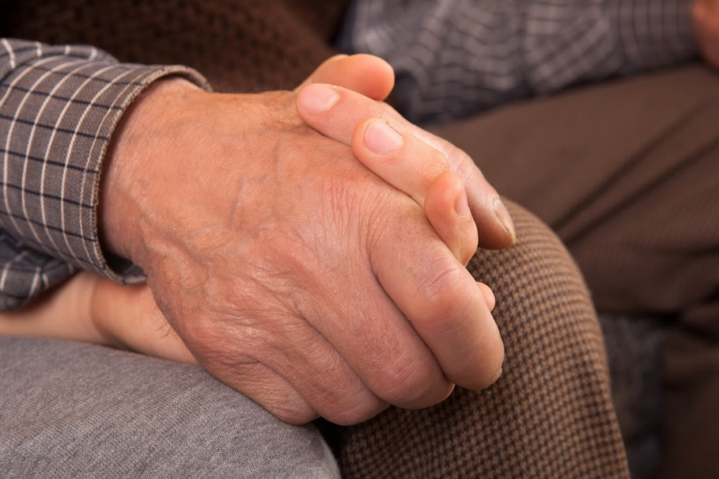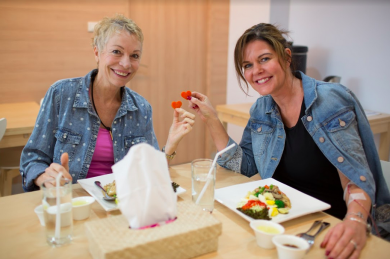
Fighting through cancer with your family
Family plays a pivotal role in our daily life by being with us through thick and thin: going shopping, spending Christmas or festive events together, as well as crying together.
Nonetheless, the moment when we need our family most is when we fall ill, either physically or mentally. This is applicable especially to most cancer patients who are experiencing profound emotional stress, either from recent cancer diagnosis or from disease progression due to the failure of previous treatments. Cancers can be found in various range of age groups: some might be grandparents who are waiting to see their grandchildren grow into adolescents, some might be fathers who need to take care of the whole family or single mothers who are solely responsible for their young children, while others might be young boys or girls who have yet to “live their lives like there is no tomorrow”. Since cancers can typically occur in any age group, emotional support to each cancer patient should be personalised.
Family, like every social organisation, comes in various forms. Therefore, the word family should not be restricted to groups of individuals who are related by blood. While some cancer patients are more fortunate to have been born with parents, receiving full emotional support, other cases might involve individuals who were born without parents or those who are closer to friends than family. For individuals who lack emotional support from their parents, support groups might play a significant role on the patients psychologically; hence, this group of patients might consider the support groups as “their family” instead, since support groups could relate more to their problems.

Research also revealed that the rate of depression in patients with cancers are up to three times higher than that of the general population. Depression could result in poorer quality of life (QOL), compromising the patients’ outcomes. Studies also disclosed that depression could lead to higher percentage of mortality in cancer. Minor and major depressions were also known to increase mortality rates by up to 39%, based on a meta-analysis, and patients who exhibit even minimal symptoms of depression might have an increased risk of mortality by 25%. The significance of mood and mental wellbeing on the progression of cancer was also underscored by both physicians and patients, where more than 70% of oncologists and 85% of cancer patients considered that mood plays a part in cancer progression.
Physical deformations and pain associated with cancers might also lead to emotional stress that may require extensive family support. Some types of cancer such as breast cancer involving the skin may lead to skin ulcerations, which may affect female patients emotionally and physically, especially the younger ones. Other types of cancer, which affect the visible part of the body, could also lead to profound mental stress for the patients. Moreover, cancer-associated pain could also result in psychological stress. According to studies, higher levels of depression have been shown to be correlated with metastases and pain associated with cancer. High pain level, when compared to low pain level, has also been associated with higher prevalence of depression in cancer patients, where it was found in one study that depression was observed in 33% and 13% of patients with high and low levels of pain, respectively. Since cancers can drain patients emotionally and also physically, as previously mentioned, family support is of paramount importance in order to help patients cope with their problems.

Development in the healthcare system have also led to a switch of cancer care to involve more home hospitalisations than in-patient hospitalisations. This deviation towards home-care settings has further resulted in increased family engagement in the patient’s day-to-day care. Aside from emotional support, patients with cancer also have multiple needs, such as monitoring of disease and treatment, administration of medications, management of symptoms and personal assistance. These require massive responsibility from the caregivers, where they also have to be well-informed of the given tasks, including information related to the disease and treatment, along with care and technical guidance. Furthermore, it could also never be overemphasised that the current roles and responsibilities of the caregivers must be balanced with their new duties. Since family caregivers also have emotional reactions to the diagnosis and prognosis of the patients, they may also need coaching and emotional support.
All in all, family plays a crucial role in the lives of cancer patients. It could be anyone close to the patient or anyone the patient can rely on mentally and physically. Due to the tasks that are placed upon the caregivers and depending on the patients’ conditions, family caregivers might also be affected psychologically and physically; therefore, the caregivers might also require emotional support. Even though cancer patients might feel like they are walking alone on their paths, there will always be someone out there, blood-related or not, who is willing to walk with them on their journey.
Reference:
Given, B. A., Given, C. W., & Kozachik, S. (2001). Family Support in Advanced Cancer. CA: A Cancer Journal for Clinicians, 51(4), 213–231. doi:10.3322/canjclin.51.4.213
Smith, H. R. (2015). Depression in cancer patients: Pathogenesis, implications and treatment (Review). Oncology Letters, 9(4), 1509–1514. doi:10.3892/ol.2015.2944
Thiti Samutharat, MD
Verita Life, Integrative Cancer Centre
www.veritalife.com
+66 2 554 8333
[email protected]



